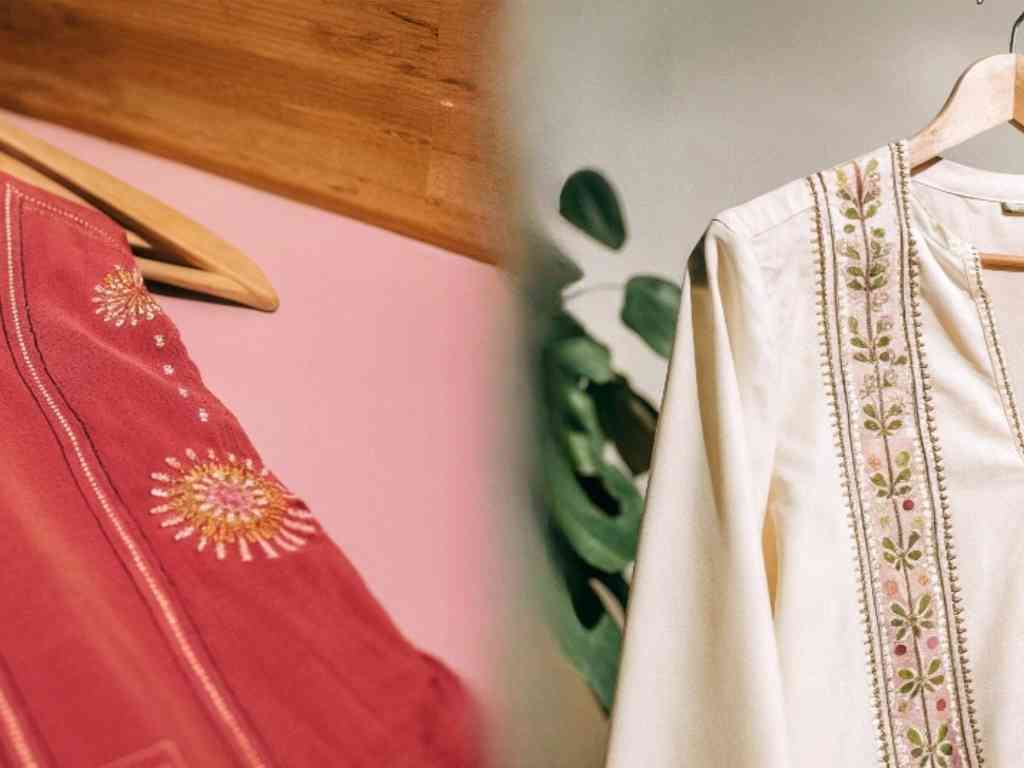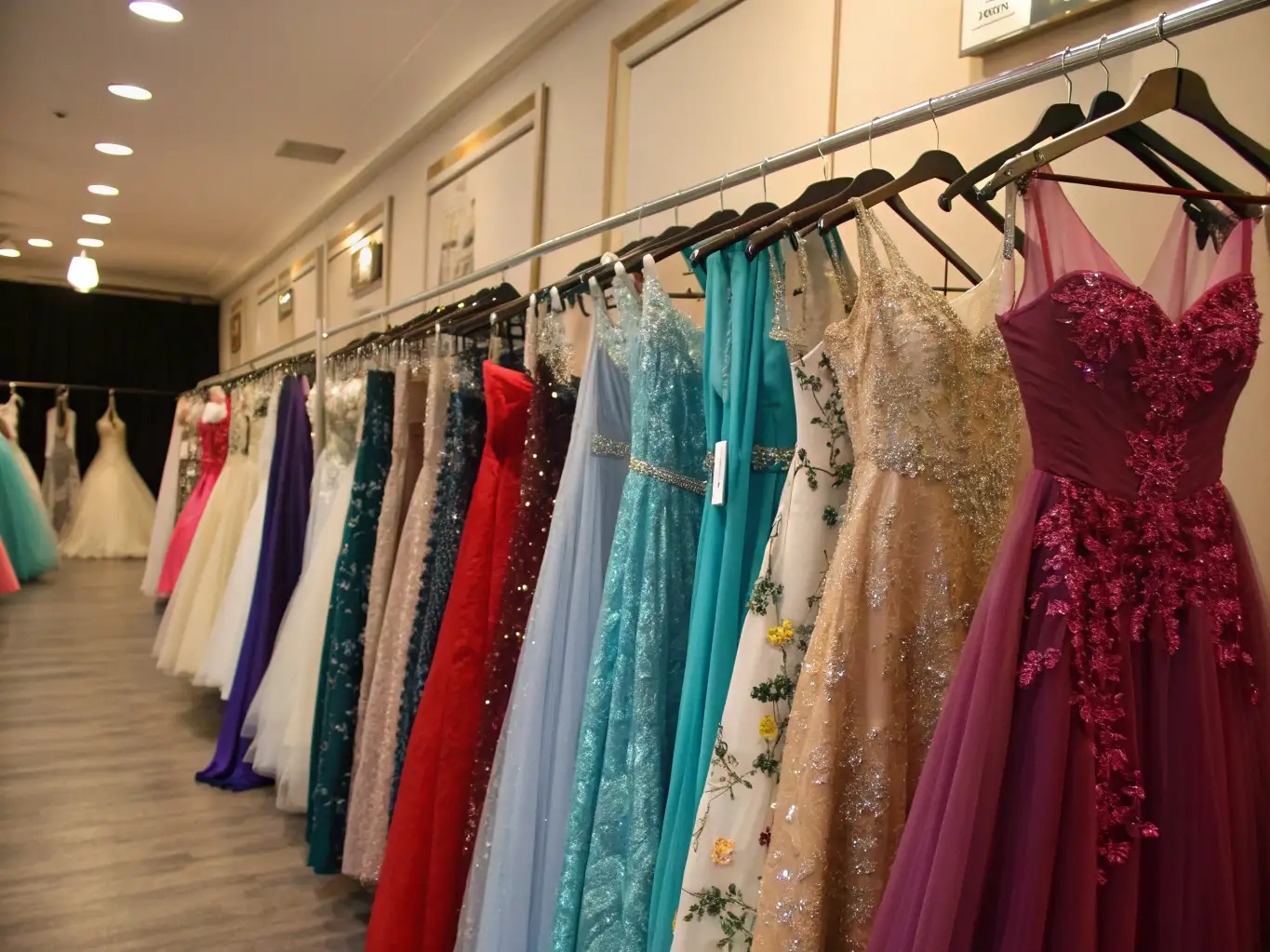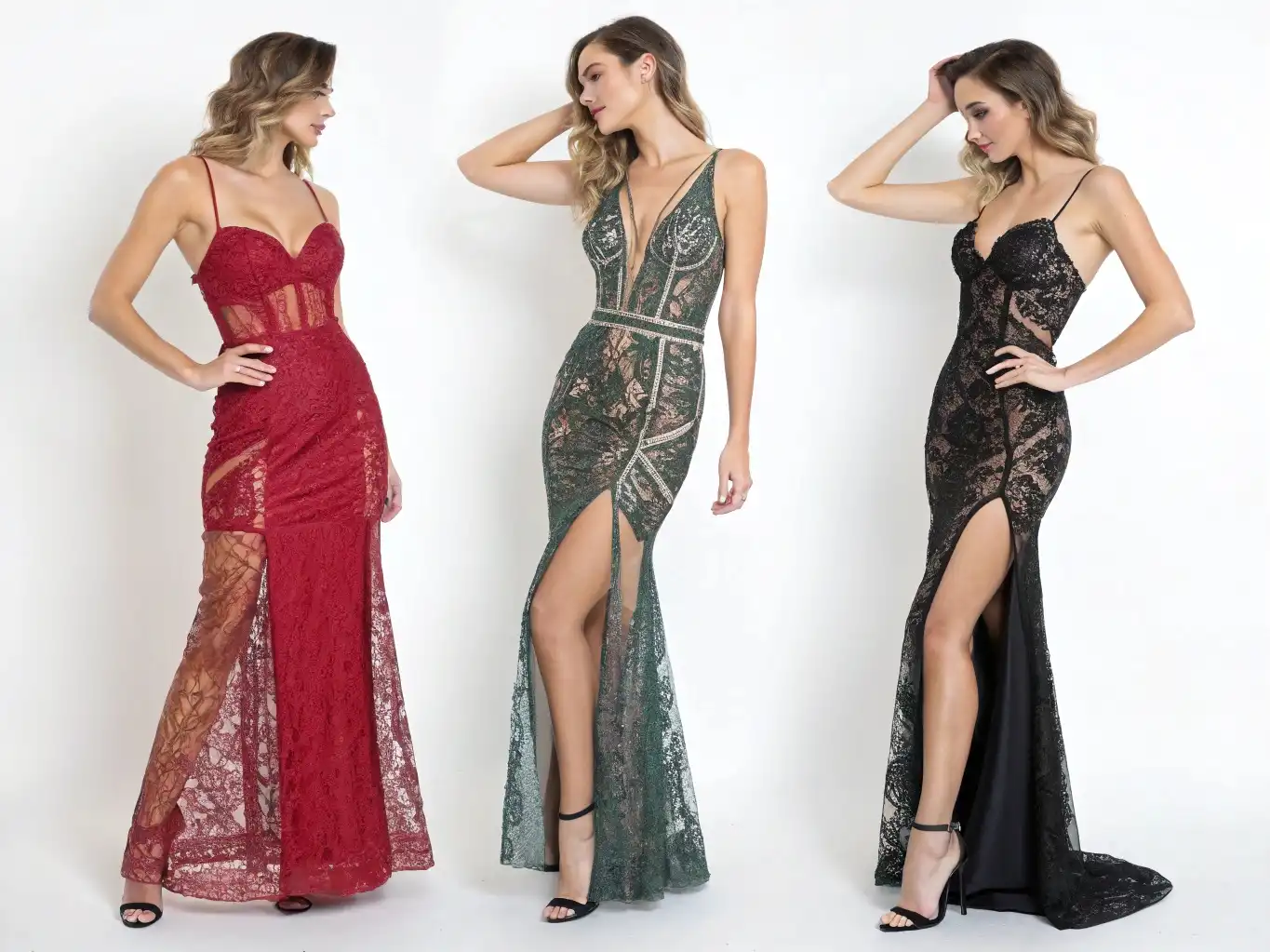Many people want clothes that fit perfectly and reflect their style, but they worry about the cost. Is custom clothing1 only for luxury budgets, or is there more to the story?
Custom clothing often costs more upfront than ready-made pieces, but its price reflects quality, personalization, and long-term value. The cost varies based on fabric, craftsmanship, and design complexity.
When I first ordered a custom blazer, the price shocked me. But after wearing it for years—and constantly getting compliments—I realized I paid for more than a garment. I paid for confidence, comfort, and durability.
What factors influence the cost of custom clothing?
The price of custom clothing isn’t random. It’s shaped by many moving parts that go beyond just the brand name.
Key factors include fabric quality2, labor costs, tailoring time, design complexity, and order quantity. All these contribute to the final price of a custom garment.
 Embroidered garments on hangers.
Embroidered garments on hangers.
How do fabric quality and material choices affect custom clothing prices?
High-quality fabrics often cost more but deliver better performance.
Premium materials like silk, organic cotton, and wool blends elevate both the look and feel of custom garments—and also the price.
Material Cost Comparison Table
| Material Type | Avg. Cost/meter | Durability | Common Uses |
|---|---|---|---|
| Polyester Blend | $2–5 | Medium | Casual wear, basics |
| Cotton Twill | $5–8 | High | Shirts, trousers |
| Organic Cotton | $8–12 | Very High | Sustainable lines |
| Silk or Wool Blend | $15–25 | Luxury | Dresses, suits |
The better the fabric, the better it drapes, breathes, and lasts. That’s why high-end custom pieces feel different from off-the-rack clothes.
Why does tailoring and craftsmanship3 increase the cost of custom garments?
Custom tailoring involves more than just sewing—it’s an art.
Each custom garment is cut, sewn, and adjusted by skilled tailors, requiring time and precision that mass production can’t match.
I once visited a tailor’s studio in Guangzhou and watched how they measure, cut, and rework the same dress three times to make it perfect. That level of detail can’t be rushed. It adds hours of labor, but it’s also what makes the clothing fit so well.
How does custom clothing compare to off-the-rack pricing?
Off-the-rack clothing often seems more affordable, but there’s a tradeoff.
While ready-made clothes cost less upfront, they lack personalized fit and often use cheaper materials to reduce manufacturing costs.
Is the price difference between custom and ready-made clothing justified?
For many, the answer is yes—especially if they care about fit, comfort, and quality.
Custom clothing lasts longer, fits better, and often requires fewer replacements, making the cost per wear much lower over time.
One of my clients once said: “I stopped buying three cheap blazers a year when I found one custom blazer that lasted five.” That stuck with me.
Can custom clothing offer better long-term value despite the higher upfront cost?
Absolutely. It’s a long-term investment.
The durability and timeless design of custom garments reduce future spending and environmental waste.
Custom vs. Off-the-Rack: Cost per Wear Table
| Clothing Type | Initial Cost | Avg. Lifespan | Cost per Wear |
|---|---|---|---|
| Off-the-rack Blazer | $80 | 1–2 years | $2–$4 |
| Custom Blazer | $250 | 5+ years | <$1 |
When you think in terms of cost per wear, custom often wins.
Are there budget-friendly options for getting custom clothing?
Yes, you don’t always need a big budget.
By choosing simpler designs, local tailors, and alternative fabrics, you can enjoy custom wear without overspending.
How can I get affordable custom clothing without compromising on quality?
There are smart strategies that keep costs down.
Opt for standard designs, avoid luxury fabrics, and work with smaller manufacturers like jinfengapparel to balance price and quality.
Ask for fabric suggestions that are durable but affordable. At our factory, we help clients choose wisely to reduce cost without compromising style.
What types of custom clothing are typically less expensive?
Some garments naturally cost less to customize.
Simple items like t-shirts, shorts, and casual dresses are more budget-friendly compared to suits or formal gowns.
Low-Cost Custom Clothing Examples
| Item | Avg. Custom Price | Notes |
|---|---|---|
| T-Shirt | $8–15 | Low material use |
| Casual Dress | $15–30 | Simple silhouette |
| Shorts | $10–20 | Minimal tailoring needed |
Start with these if you’re testing the custom route.
What are the benefits of investing in custom clothing?
It’s not just about style—it’s about how the clothes make you feel.
Custom clothing offers a unique combination of fit, comfort, durability, and self-expression.
Does custom clothing fit better and last longer than mass-produced items?
Yes, and that’s the biggest reason people return to custom.
Tailored fits reduce wear and tear, while better materials extend a garment’s life.
I still wear a custom wool coat I made 4 years ago. Not a single seam has frayed. And every winter, it feels like slipping into something made just for me—because it was.
How can custom clothing reflect personal style more effectively?
Because you’re the designer, not the retailer.
Custom garments are made to reflect your vision—colors, cuts, and finishes that speak to your personality.
When clients send us sketches or reference styles, we help turn them into real products. This process lets their style shine in a way store racks simply can’t match.
When is it worth spending more on custom clothing?
Sometimes it’s not just worth it—it’s necessary.
Custom clothing makes the biggest impact for special occasions, unique body types, and professional wardrobes.
Should I consider custom clothing for special occasions or daily wear?
Both, but start with the moments that matter.
Weddings, job interviews, or brand photoshoots are prime examples where a perfect fit and look matter most.
For everyday wear, investing in a few staple custom pieces—like blazers or tailored pants—can elevate your whole wardrobe.
What professions or lifestyles benefit most from custom wardrobes?
Those who are always seen, styled, or selling a personal brand.
Professionals in fashion, entertainment, law, and business often rely on custom clothing to convey credibility and confidence.
If you’re in front of clients or cameras, your outfit speaks before you do. That’s where custom pays off fast.
Conclusion
Custom clothing may come with a higher price tag, but it brings better fit, longevity, and personal style. With smart choices, it’s more accessible than many think.
-
Explore the advantages of custom clothing, including fit, durability, and personal style, to see if it’s right for you. ↩
-
Understanding the impact of fabric quality on clothing prices can help you make informed choices for your wardrobe. ↩
-
Discover how skilled tailoring enhances the quality and fit of custom garments, making them worth the investment. ↩





